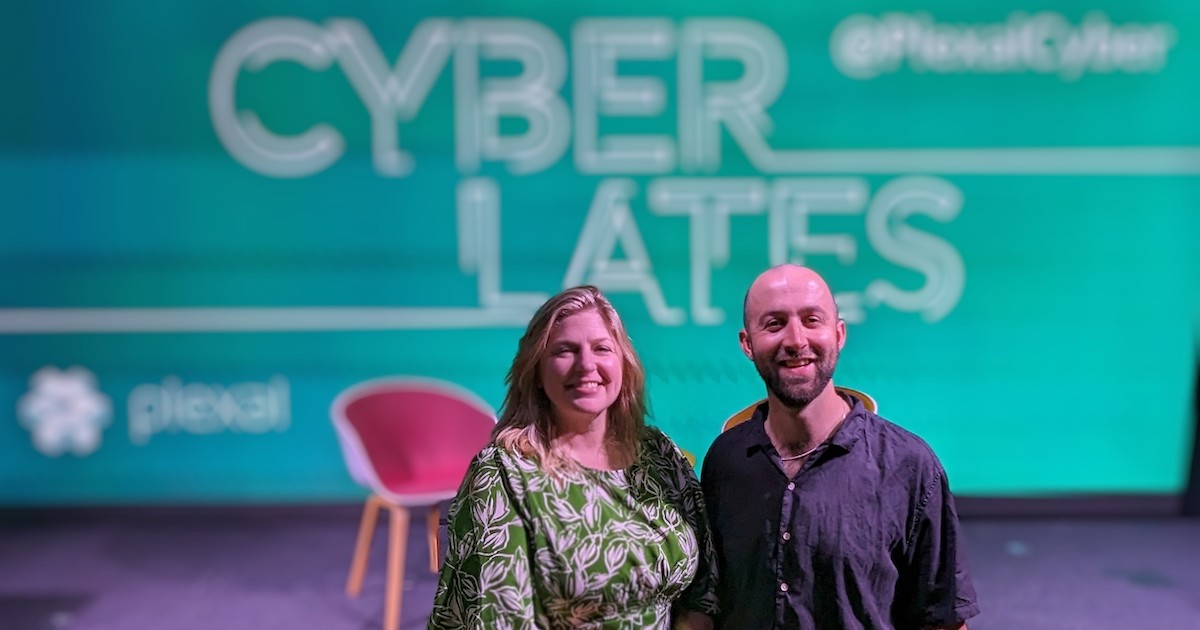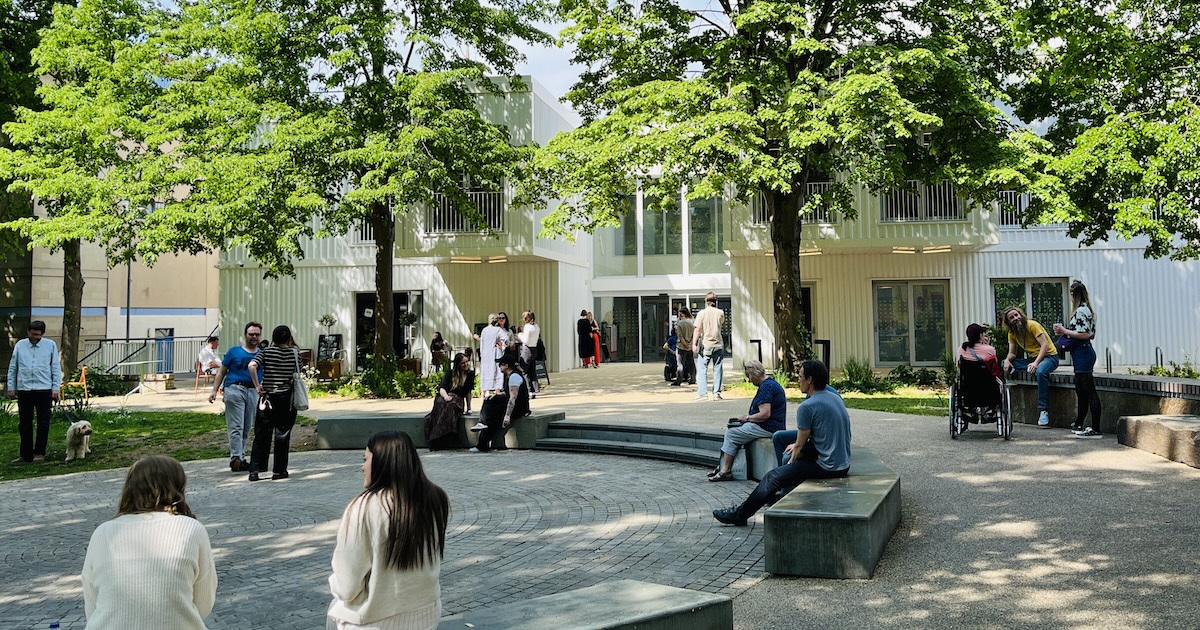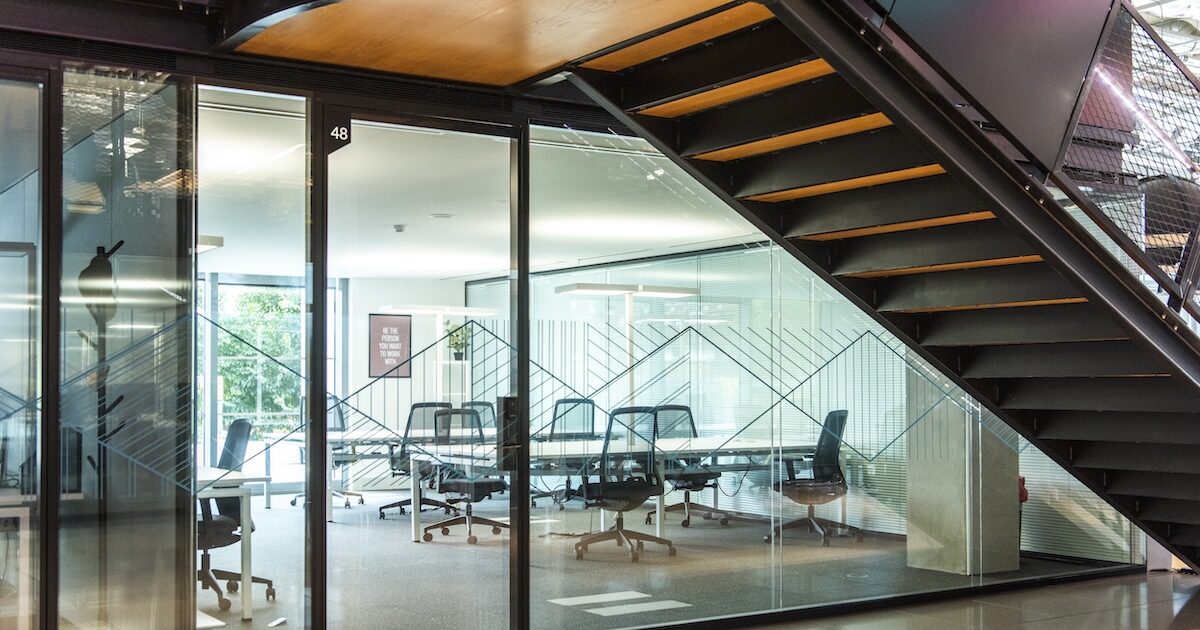We were joined by serial entrepreneur Melissa Chambers for our most recent Cyber Lates event, which discussed the F-word. That’s right… failure was the topic of the night.
In conversation with Plexal Innovation Consultant, Alan Every, Melissa reflected on her entrepreneurial journey so far, detailing what she’s learnt from unexpected mishaps along the way to a captivated audience at Plexal Stratford.
“When I talk to you about my failures, you can see there’s a light at the end of the tunnel – that isn’t a train,” Melissa begins, sharing the status of her site-to-site security business Sitehop, of which she is CEO and co-founder.
“We’re one and a half years old and have a potential ARR of over a billion dollars from its first four customers,” she says, pausing to rapturous applause before continuing “which is just freaking amazing!”
And that’s not all, earlier this year, Sitehop achieved significant success as it closed a £1m investment round and committed to hiring an additional 20 people by the end of the year.
Melissa credits a component of her success to participating in our Cyber Runway Launch programme with the Department for Science, Innovation and Technology, which she hails as an ecosystem that provided her with valuable connections and learning opportunities. To this day she remains a committed member of the cyber community, having also gone through the Grow and Ignite streams from Cyber Runway too.
Delving into her early failures as a founder, the first was experienced through Nutmeg Productions, which Melissa calls a fun experience, but adding she learned the importance of being an expert in the chosen field – not treating entrepreneurship as a hobby. “We weren’t an expert, so it was difficult to really make waves,” she explains.
Melissa’s second venture was a tech company that provided microwave filters for cellular base stations, which this time leant into her expertise as an RF engineer. She revealed how the company gained traction quickly and caught the custom of two globally-known mobile companies but eventually faced financial challenges during a recession, which led to unfavourable investor terms.
“That was a really painful lesson,” Melissa reveals. “Yes, [the investors] move fast and yes, there’s a lot of money [on offer] but be very careful of the terms that they put into place. Behind the scenes they formed alliances with board members who held back orders, so that we missed targets. And because we missed the targets, we ended up losing control of our own company that was shipping millions of dollars [of hardware] in its second year. And we got pushed out of our own company. That obviously hurt a lot.”
Having gone through such a devastating setback, Melissa’s suggestion is crystal clear. “Take advice because, as a startup founder, you’ve got great ideas, you’ve got a niche market, but you don’t know everything,” she says. “I’m still learning today. So the huge lesson from that failure was absolutely read the fine print and make sure that you’re surrounded by people that you trust.”
Elaborating on trust, Melissa says: Find an ecosystem and mentors without a vested interest. An ecosystem like @Plexalcity is so valuable because you can connect with people for unbiased answers – rather than an investor which may try to push you one way or another. #CyberLates
— Plexal Cyber (@PlexalCyber) July 19, 2023
When asked by Alan about dealing with failures, Melissa acknowledges that while she thinks about them occasionally, usually when triggered by certain scenarios, she ultimately maintains a positive attitude. She believes that failures are inevitable in entrepreneurship, but the key is to learn from them and keep moving forward, with confidence and resilience vital traits for founders to overcome failures and continue pursuing their goals.
“The only way to move forward is to try,” Melissa opines. “And trying sometimes means you’re going to fail. But fail fast. Do I think about those things [that have happened before]? Yeah, absolutely – and it hurts. But what I focus on is: what did I learn? How can I refocus? How can I make sure I don’t do that again?” In addition to self-reflection, Melissa proceeded to double down on the value of collaborating with peers for support, referencing how she’s turned to Plexal CEO Andrew Roughan, investors and other members of the “Plexal family” for advice too.
Closing out the conversation, Alan adds: “A problem shared is a problem halved. And if you can share a failure with a strong ecosystem, you’ll find people that’ll help you overcome it.”
Catch the discussion in full below.
Stay tuned to our social channels @PlexalCyber on Twitter, Plexal Cyber on LinkedIn and sign up to our Cyber Community newsletter for more updates on our cyber security programmes.


